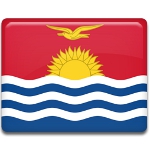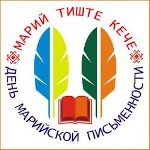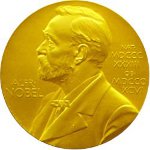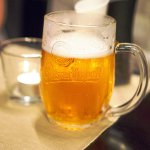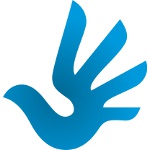Holidays Calendar for December 10, 2024
Constitution Day is a public holiday in Thailand. It's observed on December 10 to celebrate the anniversary of adoption of the first Constitution of Thailand in 1932.
Human Rights and Peace Day is a public holiday in Kiribati, that is celebrated in honor of Human Rights Day on December 10. Since the government of Kiribati follows the policy of long weekends, that date of the holiday is annually moved.
Human Rights Day is an official United Nations observance that is celebrated annually across the world on December 10. In some countries, it was declared a national holiday. In Namibia, for example, December 10 is observed as Human Rights Day and Women’s Day.
Victory over Daesh Day, also known as simply Victory Day, is a public holiday in Iraq. It was officially established in 2017 to celebrate the defeat of ISIL in the territory of Iraq after more than three years of fighting.
Hanukkah, also transliterated as Chanukah, is a Jewish eight-day festival of lights that starts on the 25th day of the month of Kislev. It commemorates the re-dedication of the Second Temple in Jerusalem during the Maccabean Revolt, following Judah Maccabee’s victory over the Seleucids.
Every year International Animal Rights Day is celebrated on December 10. This observance coincides with the anniversary of the Universal Declaration of Human Rights declared in 1948, and this has been made deliberately.
Wines produced in the Tokaj wine region of Hungary are famous around the world, and the most famous one of them is Tokaji Aszú, a sweet, topaz-colored white wine made with “nobly rotten” grapes. Hungarian winemakers are so proud of it that they even celebrate International Aszú Day every December 10.
World Twin Reversed Arterial Perfusion Sequence Awareness Day, also known as World TRAP Awareness Day or World TRAP Day, is observed annually on December 10. It was created to raise awareness of a form of twin-to-twin transfusion syndrome.
Mari Alphabet Day is celebrated on December 10 in the Mari El Republic of the Russian Federation. It was created to increase interest in the history of the Mari language and to raise awareness of the importance of its preservation and development.
Dewey Decimal System Day is celebrated annually on December 10. It was created in honor of the most widely used library classification system and its inventor, Melvil Dewey.
Alfred Nobel Day is observed on December 10. On this day, the annual Nobel Prize Ceremony is held simultaneously in Stockholm, Sweden and in Oslo, Norway. In Sweden, Nobeldagen is an official flag day designated by the Swedish government.
The National Lager Day is observed on December 10. This food-related holiday is a perfect occasion to go out to a pub and enjoy a glass or two of beer.
In 1950 the UN General Assembly adopted a decision to designate December 10 to be Human Rights Day. This international observance was established to celebrated the declaration anniversary of the Universal Declaration of Human Rights in 1948.
Suspended Coffee Day, also translated as Pending Coffee Day, is celebrated annually on December 10. It was created to raise awareness of the tradition of paying for a cup of coffee in advance as an act of charity that was born in Naples.
Festivals for December 10, 2024
- Nobel Prize Award Ceremony in Oslo, Norway
- Nobel Prize Award Ceremony in Stockholm, Sweden
- Stalker International Human Rights Film Festival in Moscow, Russia
- Teatralny Koufar International Student Theatre Festival in Minsk, Belarus
- Duhok International Film Festival in Duhok, Iraq
- Whirling Dervish Festival (Şeb-i Arûs) in Konya, Turkey
- Dubai Shopping Festival in Dubai, UAE
- Havana Film Festival in Havana, Cuba
- Portland Christmas Ship Parade in Portland (OR), USA
- GUM Christmas Fair at Red Square in Moscow, Russia
- Rome Christmas Market in Rome, Italy
- Jazz Bez in Lviv, Ukraine
- Cavalcade of Lights in Toronto, Canada
- Winter Wonderland at VDNG in Kyiv, Ukraine
- Prague Christmas Market in Prague, Czech Republic
This Day in History
- 2025 Died: Sophie Kinsella (pen name of Madeleine Sophie Wickham), English author best known for her best-selling Shopaholic series of novels. She succumbed to brain cancer two days before her 56th birthday.
- 2021 A widespread, deadly, and violent tornado outbreak slammed the Central, Midwestern, and Southern regions of the United States, killing at least 89 people over two days.
- 2010 Died: John Fenn, American analytical chemist who shared half of the 2002 Nobel Prize in Chemistry with Koichi Tanaka. The other half went to Kurt Wüthrich.
- 2006 Died: Augusto Pinochet, Chilean military officer, politician and statesman. He was the dictator of Chile from 1973 to 1990 and Commander-in-Chief of the Chilean Army from 1973 to 1998.
- 1993 id Software released Doom, a sci-fi horror-themed first-person shooter. It is regarded as one of the most significant and influential titles in the video game industry.
- 1991 Born: KiKi Layne, American actress. Her film credits include If Beale Street Could Talk, Native Son, The Old Guard, Coming 2 America, and Dandelion.
- 1990 Born: Teyana Taylor, American singer, songwriter, actress, model, dancer, choreographer, and music video director. She first came to public attention after appearing on MTV's My Super Sweet 16.
- 1989 The first open pro-democracy public demonstration in Mongolia took place in Ulaanbaatar. There, the creation of the Mongolian Democratic Union was announced.
- 1987 Died: Jascha Heifetz, Lithuanian-born Jewish American violinist and educator. Heifetz is considered to be one of the most influential violinists of the 20th century.
- 1983 Raúl Ricardo Alfonsín took office as the 46th President of Argentina, becoming the first democratically elected president of Argentina following the National Reorganization Process.
- 1978 Died: Ed Wood, American screenwriter, director, actor, film editor, actor, and author. His career and camp approach has earned him and his films a cult following.
- 1975 Born: Emmanuelle Chriqui, Canadian and American actress known for he roles as Sloan McQuewick on Entourage, Lorelei Martins on The Mentalist, and Lana Lang/Cushing on Superman & Lois.
- 1972 Born: Brian Molko, British-American singer-songwriter and musician. He is best known as the lead vocalist and guitarist of the alternative rock band Placebo.
- 1968 Japan's largest heist, known as the 300 million yen robbery or the 300 million yen affair/incident, was carried out in Tokyo. The case still remains unsolved.
- 1968 Died: Karl Barth, Swiss Reformed theologian who is considered to be one of the greatest Protestant theologians of the 20th century. His magnum opus is Church Dogmatics.
- 1963 Zanzibar gained independence from the United Kingdom as a constitutional monarchy. In 1964, it became a republic and merged with Tanganyika to form Tanzania.
- 1960 Born: Kenneth Branagh, British actor and filmmaker whose accolades, as of 2023, include an Academy Award, four BAFTAs, two Emmy Awards, a Golden Globe Award, and an Olivier Award.
- 1958 Born: Cornelia Funke, German author of children's fiction, often referred to as the "German J. K. Rowling". She is probably best known for her Inkheart series of novels.
- 1952 Born: Susan Dey, American actress best known for her roles on television (Laurie Partridge on The Partridge Family and Grace Van Owen on L.A. Law).
- 1941 The British Royal Navy battleship HMS Prince of Wales and battlecruiser HMS Repulse were sunk by the Imperial Japanese Navy during the Second World War.
- 1936 Died: Luigi Pirandello, Italian playwright, novelist, short story writer, and poet who was awarded the 1934 Nobel Prize in Literature for his outstanding plays.
- 1934 Born: Howard Martin Temin, American geneticist and virologist who was awarded the 1975 Nobel Prize in Physiology or Medicine, sharing it with two other scientists.
- 1928 Died: Charles Rennie Mackintosh, Scottish architect, designer, and artist. He is regarded the main representative of Art Nouveau in the United Kingdom.
- 1928 Born: Barbara Nichols (born Barbara Marie Nickerauer), American model and actress best known for the brassy comic roles she played in films and TV series.
- 1918 Born: Nelly Sachs, Jewish German poet and playwright who was awarded the 1966 Nobel Prize in Literature, sharing the award with Shmuel Yosef Agnon.
- 1918 Born: Anatoli Tarasov, Soviet and Russian ice hockey player and coach who is regarded as "the father of Russian hockey". He was inducted into the Hockey Hall of Fame.
- 1911 Died: Joseph Dalton Hooker, British botanist and explorer who founded geographical botany. He served as Director of the Royal Botanical Gardens, Kew.
- 1901 The inaugural Nobel Prizes were awarded. The first awardees were Henry Dunant, Frédéric Passy, Sully Prudhomme, Jacobus Henricus van 't Hoff, Wilhelm Conrad Röntgen, and Emil von Behring.
- 1896 Died: Alfred Nobel, Swedish chemist, engineer, inventor, innovator, and armaments manufacturer, best known for inventing dynamite and founding the Nobel Prize.
- 1851 Died: Karl Drais, German inventor best known as the inventor of the human-powered vehicle known as the dandy horse, Laufmaschine, velocipede, or draisine.
- 1851 Born: Melvil Dewey, American librarian and educator, primarily remembered for inventing the Dewey Decimal System of library classification (first published in 1876).
- 1830 Born: Emily Dickinson, renowned American poet. Dickinson wrote nearly 1,800 poems, but only about a dozen of her works were published during her lifetime.
- 1815 Born: Ada Lovelace (born Augusta Ada Byron), English mathematician and author regarded as the first computer programmer for her work with Babbage's analytical engine.
- 1787 Born: Thomas Hopkins Gallaudet, American educator best known as a co-founder and the first principal of the first institution for the education of the deaf in North America.
- 1768 The Royal Academy of Arts was founded in Britain through a personal act of King George III. The instrument of foundation named 34 founder members.
- 1520 Martin Luther publicly set fire to his copy of the papal bull Exsurge Domine and decretal at Wittenberg. As a result, he was excommunicated by Pope Leo X on January 3, 1521.
- 1508 Pope Julius II, Ferdinand II of Aragon, Louis XII of France, and Holy Roman Emperor Maximilian I formed the League of Cambrai as an alliance against Venice.

